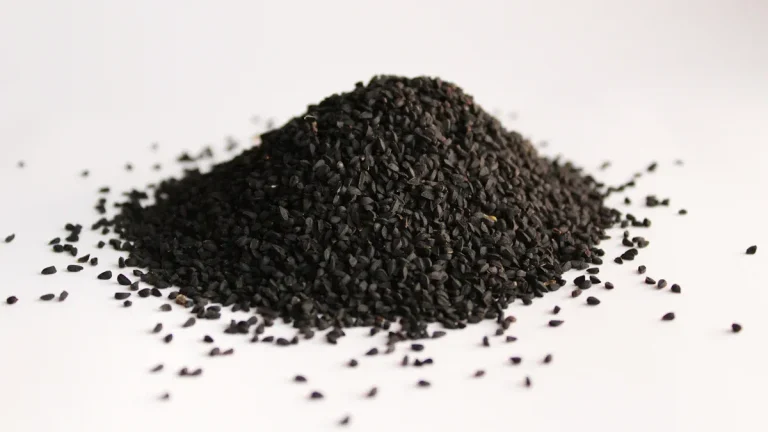
Apple cider vinegar steps into your daily routine as a true multitasker. You can use it for everything from freshening up your hair to tackling stubborn stains on your carpet. Many people swear by its ability to soothe bloating, improve skin, and even help with weight management. Take a look at some study findings that show how apple cider vinegar works for different needs:
Application | Study Findings |
|---|---|
Insulin Sensitivity | Some studies suggest ACV may improve insulin sensitivity. |
Appetite Suppression | ACV has been noted to slightly suppress appetite, aiding in weight management. |
Skin and Hair Issues | ACV’s antibacterial properties make it useful for treating skin and hair problems. |
With so many Essential Uses, you can explore safe and effective ways to make apple cider vinegar work for you every day.
Key Takeaways
Apple cider vinegar can aid digestion. Mix 1-2 tablespoons with water before meals to help break down food and control blood sugar.
For weight management, taking 1-2 tablespoons daily may help you lose weight over time. Studies show significant weight loss in those who include it in their routine.
Diluting apple cider vinegar is crucial. Always mix it with water to protect your teeth and throat from its acidity.
Apple cider vinegar serves as a natural remedy for various skin and hair issues. Use it as a toner, conditioner, or to soothe sunburn.
In your home, apple cider vinegar works as an all-purpose cleaner, odor remover, and even a weed killer. It’s a versatile, eco-friendly solution.
Essential Uses for Health
Digestion
Apple cider vinegar is one of those Essential Uses you can try for better digestion. Many people mix 1 to 2 tablespoons of apple cider vinegar with a glass of water before meals. This practice may help your stomach break down proteins by increasing acidity. Some studies show that vinegar can delay gastric emptying and help control blood sugar after eating.
Tip: Always dilute apple cider vinegar in water. This keeps your teeth and throat safe from its strong acid.
Here’s a quick look at what research says:
Study Description | Findings |
|---|---|
Effect on delayed gastric emptying in diabetes | Vinegar delayed gastric emptying, which may help digestion and metabolic control. |
Impact on post-meal blood sugar | Vinegar reduced blood sugar and insulin levels after meals. |
Relationship with satiety | More vinegar led to longer feelings of fullness. |
Weight Loss
You might see apple cider vinegar listed among Essential Uses for weight loss. Some studies found that adults who took 1-2 tablespoons daily lost more weight than those who didn’t. In one study, people lost up to 4 pounds over 12 weeks. The highest dose group saw the biggest drop in body weight.
Group | Body Weight at Week 12 | BMI at Week 12 | Serum Glucose, Triglyceride, and Cholesterol Levels |
|---|---|---|---|
15 mL ACV | 70.2 kg | 27.2 | Decreased significantly |
Placebo | 78.8 kg | 30.6 | No significant change |
Two tablespoons daily helped some people lose close to 4 lbs in 12 weeks.
One tablespoon led to 2.5 lbs lost.
The placebo group gained weight.
Note: Apple cider vinegar can irritate your stomach and throat. Always dilute it. Too much can harm your teeth and interact with medicines. Never drink it straight.
Blood Sugar
Apple cider vinegar is popular for helping control blood sugar. Some studies show that taking 2 tablespoons at bedtime can lower fasting blood sugar. It works best with complex carbs, not simple sugars.
Study | Findings |
|---|---|
White and Johnston (2007) | Lower morning fasting blood sugars with 2 tablespoons of ACV at bedtime. |
Johnston et al. (2010) | 10 grams of vinegar reduced blood sugar after meals by about 20%. |
Liatis et al. (2010) | ACV effective at reducing blood sugar with high glycemic index carbs. |
van Dijk et al. (2012) | No difference with simple sugars. |
ACV may help lower HbA1C, a marker for glucose control.
No big changes in insulin levels.
Best results for people with higher fasting blood sugar.
Safety Reminder: Always dilute apple cider vinegar. Large amounts can cause nausea and weaken tooth enamel. Talk to your doctor before using it, especially if you take medicine for diabetes or heart problems.
Sore Throat
Apple cider vinegar is one of those Essential Uses people try for sore throat relief. Its antibacterial properties might help if the sore throat is caused by bacteria. Most sore throats are viral, so results can vary. There isn’t strong scientific proof, but some people say it helps.
Mix 1-2 tablespoons in 8 ounces of warm water.
Gargle or sip slowly.
Tip: Never use apple cider vinegar undiluted. It can hurt your throat and teeth.
Immunity
You can use apple cider vinegar to support your immune system. It contains probiotics that help balance your gut, which is important for immunity. The polyphenols in vinegar fight free radicals and help keep your cells healthy.
Method | Benefit Description |
|---|---|
Antimicrobial properties | Helps fight off germs that can make you sick. |
Antioxidant content | Reduces stress on your cells, boosting immune function. |
Gut health maintenance | Probiotics support a healthy gut microbiome, key for immunity. |
Acetic acid content | Promotes a balanced environment in your body. |
Many people add apple cider vinegar to dressings or marinades.
It’s a low-cost, low-risk way to try boosting your immune health.
Heartburn
Some people use apple cider vinegar for heartburn, hoping it will help. There isn’t enough research to prove it works, but the risk is usually low if you dilute it.
Mix 1-2 tablespoons in a glass of water.
Drink before meals if you want to try it.
Alert: Always talk to your doctor before using apple cider vinegar for heartburn. Never drink it straight. Watch for side effects like tooth erosion or throat irritation.
Bloating
Apple cider vinegar is one of the Essential Uses for bloating relief. It may help by increasing stomach acidity and supporting healthy gut bacteria.
Mix 1-2 tablespoons with 1 cup of water.
Make ACV tea by adding lemon juice to warm water and vinegar.
Add ACV to smoothies with fruit.
Use ACV as a salad dressing.
Try organic ACV shots for convenience.
Always dilute apple cider vinegar to protect your teeth and throat.
Detox
People often use apple cider vinegar for detox. Some studies show it can lower blood sugar, cholesterol, and body fat.
Ingredient | Amount |
|---|---|
Apple Cider Vinegar (ACV) | 1 to 2 tbsp |
Water | 8 oz |
Sweetener (optional) | 1 to 2 tbsp (honey, etc.) |
Extras | Lemon juice, apple juice, cayenne, cinnamon, ginger |
Other Incorporation Methods | Description |
|---|---|
Salad Dressing | Use ACV in dressings |
Marinades | Add to meat and veggie marinades |
Popcorn | Spray onto popcorn |
Green Juice | Mix with green juice |
Soups and Stews | Stir into soups and stews |
Some people follow this detox for a few days or up to a month.
Muscle Cramps
Apple cider vinegar is among the Essential Uses for muscle cramps. Its acetic acid content may help relieve cramps, but too much can lower potassium, which is bad for muscles.
Substance | Acetic Acid Content | Potential for Cramp Relief |
|---|---|---|
Apple Cider Vinegar | Moderate | Yes |
Yellow Mustard | Moderate | Yes |
Dill Pickle Juice | Moderate | Yes |
For prevention: Take 1-2 tablespoons in ¼ cup warm water daily.
For quick relief: Massage apple cider vinegar into the cramped muscle.
Don’t overuse apple cider vinegar. Too much can lower potassium and cause cramps.
Hiccups
Apple cider vinegar is a home remedy for hiccups. Some people find that a teaspoon stops hiccups right away. Its sour taste may disrupt the hiccup reflex.
Take a teaspoon of apple cider vinegar.
Mix 1 teaspoon with 1/3 cup water and sip.
Try ACV lollipops made for hiccup relief.
If hiccups persist, talk to your doctor.
Beauty and Personal Care

Hair Rinse
You can use apple cider vinegar as a hair rinse to remove buildup from styling products. Mix one part vinegar with two parts water. Pour it over your hair after shampooing. Rinse well with cool water.
Hair Conditioner
Apple cider vinegar works as a natural hair conditioner. It helps smooth your hair and adds shine. Combine a tablespoon of vinegar with a cup of water. Use it after shampooing, then rinse.
Scalp Care
If you have an itchy scalp, apple cider vinegar can help. Dilute it with water and massage it into your scalp. Leave it on for a few minutes before rinsing. This may help with flakes and dryness.
Facial Toner
You can make a simple facial toner with apple cider vinegar. Mix one part vinegar with four parts water. Apply it to your face with a cotton ball. This helps balance your skin’s pH.
Acne
Apple cider vinegar may help with acne. Dab a diluted solution onto blemishes. The vinegar’s acids can help dry out pimples.
Sunburn
For sunburn relief, add a cup of apple cider vinegar to your bathwater. Soak for 15 minutes. This can help soothe your skin.
Deodorant
You can use apple cider vinegar as a natural deodorant. Dab a little under your arms with a cotton pad. It helps neutralize odor.
Teeth Whitening
Some people use apple cider vinegar to whiten teeth. Dilute it with water and swish for a few seconds. Rinse your mouth well with plain water after.
Wart Removal
Apply a small amount of apple cider vinegar to a cotton ball. Place it on the wart and cover with a bandage overnight. Repeat until the wart falls off.
Aftershave
You can use apple cider vinegar as an aftershave. Mix it with water and pat it on your skin. It helps soothe razor burn.
Nail Fungus
Soak your nails in a mixture of vinegar and water. This may help with nail fungus over time.
Skin Rash
Dab diluted apple cider vinegar on a skin rash. It can help calm irritation.
Tip: Always dilute apple cider vinegar before using it on your skin or hair. Test on a small area first.
Apple cider vinegar stands out for its Essential Uses in beauty and personal care. You can try these simple ideas at home.
Essential Uses in the Home
All-Purpose Cleaner
You can use apple cider vinegar as a natural all-purpose cleaner around your home. Mix equal parts vinegar and water in a spray bottle. This solution works well for wiping down countertops, sinks, and appliances. Many people like this method because it avoids harsh chemicals.
Vinegar can cut through dirt and kill some bacteria, especially when used at full or nearly full strength.
Most people dilute vinegar, which makes it less powerful than commercial cleaners.
Apple cider vinegar has antibacterial properties, but it does not remove all harmful bacteria as well as store-bought products.
Consumer Reports notes that vinegar is not the best for heavy grime unless you use it undiluted.
Tip: Add a few drops of essential oil, like lemon or lavender, to mask the vinegar smell.
Glass Cleaner
Apple cider vinegar makes a streak-free glass cleaner. Mix one part vinegar with two parts water. Spray it on mirrors or windows and wipe with a lint-free cloth. You can add a drop of peppermint oil for a fresh scent.
Vinegar helps remove fingerprints and smudges.
The scent may linger for about an hour, but essential oils can help.
Mold Remover
Apple cider vinegar can help you tackle light mold on non-porous surfaces. Spray undiluted vinegar on the moldy area and let it sit for at least an hour before scrubbing.
Vinegar kills mold on surfaces and can prevent minor growth.
It works best on common household molds like Penicillium chrysogenum.
For larger or more harmful mold, like Aspergillus fumigatus, you may need professional help.
Mold Type | Effectiveness with ACV | Notes |
|---|---|---|
Penicillium chrysogenum | Effective | Common household mold |
Aspergillus fumigatus | Less effective | More harmful type of mold |
Apple cider vinegar’s acetic acid gives it antifungal power.
It works for light surface mold but not for big infestations.
Safety first! Wear gloves, goggles, and a mask to protect your skin, eyes, and lungs from mold and vinegar.
Odor Remover
You can use apple cider vinegar to neutralize odors in your home. Place a bowl of vinegar in a musty room or near trash cans. The vinegar absorbs bad smells and leaves the air fresher.
For stronger odors, add a few drops of essential oil to the bowl.
You can also wipe down surfaces with diluted vinegar to remove lingering smells.
Air Freshener
Apple cider vinegar works as a natural air freshener. Fill a spray bottle with one part vinegar and two parts water. Add a few drops of your favorite essential oil. Spray the mixture in the air to freshen up any room.
The vinegar smell fades quickly, leaving behind the scent of the essential oil.
This method avoids artificial fragrances and chemicals.
Carpet Cleaner
You can clean carpet stains with apple cider vinegar and baking soda. Sprinkle baking soda on the stain, then spray diluted vinegar over it. Let it fizz and sit for a few minutes. Blot with a clean cloth and repeat if needed.
Baking soda acts as a gentle scrub and deodorizer.
Vinegar helps lift stains and remove odors.
This combination can be effective for tackling tough stains and odors in various areas of your home!
Laundry Booster
Add half a cup of apple cider vinegar to your laundry to boost cleaning power. Pour it into the rinse cycle. Vinegar helps break down detergent residue and softens fabrics.
It can also help remove musty smells from towels and gym clothes.
Your laundry comes out fresher and softer.
Fabric Softener
You can use apple cider vinegar as a natural fabric softener. Add a quarter cup to the final rinse cycle. It softens clothes without leaving a strong scent.
This method is gentle on sensitive skin.
You avoid the chemicals found in many commercial softeners.
Drain Cleaner
Apple cider vinegar can help keep your drains clear. Pour half a cup of baking soda down the drain, then add one cup of vinegar. Let it fizz for a few minutes, then flush with hot water.
The bubbling action helps break up minor clogs and deodorizes the drain.
This method is safe for most pipes and septic systems.
Pet Stains
You can clean pet stains from carpets or upholstery with apple cider vinegar. Blot up as much of the mess as possible. Mix equal parts vinegar and water, then spray the area. Blot again and sprinkle baking soda if needed.
Vinegar neutralizes odors and helps lift stains.
Baking soda adds extra deodorizing power.
Disinfectant
Apple cider vinegar has some disinfectant properties. Use it to wipe down kitchen counters, doorknobs, or bathroom surfaces. For best results, use it undiluted or nearly full strength.
Vinegar can kill some bacteria, but it is not as strong as commercial disinfectants.
Always test on a small area first to avoid damage.
Weed Killer
You can use apple cider vinegar as a natural weed killer in your yard or garden. Spray undiluted vinegar directly on the leaves of young weeds during a sunny day. For larger weeds, a stronger solution works better.
Concentration of Acetic Acid | Effectiveness on Young Weeds | Effectiveness on Larger Weeds | Specific Weeds Controlled |
|---|---|---|---|
5-10% | Good for small, young weeds | Larger weeds may survive | Broadleaf plantain, chickweed, crabgrass |
20% | Better for larger weeds | Effective on most weeds | Velvetleaf, spiny amaranth, Canada thistle |
Research shows that a 5% solution can kill young weeds, while a 20% solution works on bigger ones.
Vinegar is a safe option for sidewalks and gravel paths, but avoid spraying near plants you want to keep.
For best results, spray on a sunny day when temperatures are above 70°F. Use a brush for precise application if you want to protect nearby plants.
Apple cider vinegar stands out for its Essential Uses in the home. You can clean, freshen, and even garden with this simple, eco-friendly staple.
Cooking and Food Prep

Salad Dressing
You can use apple cider vinegar to make salad dressings that taste fresh and tangy. The vinegar’s fruity notes and hint of sweetness pair well with leafy greens and creamy ingredients. Many people choose apple cider vinegar for dressings because it is considered the healthiest option. It comes from fermented apple juice, which gives it a unique flavor.
Culinary Use | Flavor Profile |
|---|---|
Dressings | Fruity, tangy, slightly sweet |
Marinades | Enhances flavor with acidity |
Health-focused recipes | Provides a tangy kick to dishes |
Apple cider vinegar adds a creamy texture and tanginess to salads with grilled chicken or roasted vegetables.
The balance of richness and acidity makes it perfect for many recipes.
Tip: Using apple cider vinegar in dressings lets you enjoy its health benefits, especially when mixed with other ingredients.
Marinade
You can use apple cider vinegar as a marinade for meats and vegetables. The acidity helps enhance flavors and tenderize food. Many cooks add herbs, spices, and a splash of oil to create a tasty marinade.
Pickling
Apple cider vinegar works well for pickling vegetables. You can use it to make crunchy pickles, onions, or peppers. The vinegar’s tangy taste gives pickled foods a bright flavor.
Baking
You can add apple cider vinegar to baking recipes. It reacts with baking soda to help cakes and muffins rise. The vinegar also adds a subtle tang to baked goods.
Flavor Boost
Apple cider vinegar gives a flavor boost to soups, stews, and sauces. You can add a splash to brighten up the taste of your dish. The vinegar’s acidity balances rich and savory flavors.
Preserving Food
You can use apple cider vinegar to preserve fruits and vegetables. The acidity helps keep food fresh and safe to eat. Many people use it for homemade preserves and chutneys.
Meat Tenderizer
Apple cider vinegar acts as a natural meat tenderizer. You can soak tougher cuts of meat in a mixture of vinegar and spices. The acid breaks down fibers, making the meat softer.
Soups and Stews
You can add apple cider vinegar to soups and stews for extra depth. A small amount brings out the flavors of vegetables and meats.
Sauces
Apple cider vinegar works in sauces like barbecue or vinaigrette. You can use it to add tang and balance to sweet or spicy sauces.
Egg Poaching
You can use apple cider vinegar when poaching eggs. A splash in the water helps the egg whites set quickly, giving you perfect poached eggs.
Note: Apple cider vinegar contains polyphenols and acetic acid, which may help control blood sugar and support heart health. Using it in cooking is an easy way to add nutrition to your meals.
Wellness and Remedies
Bug Bites
Apple cider vinegar is what you can use for bug bites. Dab a little diluted vinegar on the bite with a cotton ball. The vinegar helps calm the itch and may reduce swelling. You can keep a small spray bottle of diluted vinegar handy for outdoor trips.
Tip: Always test on a small patch of skin first to check for sensitivity.
Itchy Skin
You can use apple cider vinegar when your skin feels itchy. Mix one part vinegar with three parts water. Gently pat the mixture on the itchy area. The vinegar’s acidity helps soothe the skin and may stop the urge to scratch.
Poison Ivy
Apple cider vinegar is what many people reach for after touching poison ivy. Soak a clean cloth in diluted vinegar and place it on the rash. The vinegar helps dry out blisters and may ease itching.
Use | How to Apply | Benefit |
|---|---|---|
Poison Ivy | Soak cloth, apply | Dries rash |
Dandruff
You can use apple cider vinegar to fight dandruff. Mix equal parts vinegar and water. Pour it onto your scalp after shampooing. Let it sit for a few minutes, then rinse. The vinegar helps remove flakes and leaves your scalp feeling fresh.
Muscle Soak
Apple cider vinegar is what you can add to your bath for sore muscles. Pour one to two cups into warm bathwater. Soak for 20 minutes. The vinegar helps relax your muscles and may ease aches.
Mouthwash
You can use apple cider vinegar as a natural mouthwash. Mix one tablespoon with a cup of water. Swish for 30 seconds, then rinse with plain water. The vinegar helps freshen breath and may kill some germs.
Note: Never use undiluted vinegar in your mouth. It can harm your teeth.
Athlete’s Foot
Apple cider vinegar is what you can try for athlete’s foot. Soak your feet in a basin with one part vinegar and four parts water for 15 minutes. The vinegar’s antifungal properties help fight the infection.
Minor Burns
You can use apple cider vinegar for minor burns. Cool the burn with water first. Dab diluted vinegar on the area with a soft cloth. The vinegar helps soothe pain and may prevent infection.
Skin Irritation
Apple cider vinegar is what you can use for mild skin irritation. Mix with water and gently apply to the area. The vinegar calms redness and helps your skin feel better.
Always dilute apple cider vinegar before using it on your skin. If irritation gets worse, stop using it and talk to a doctor.
Apple cider vinegar gives you so many ways to improve your health, beauty, home, and kitchen. You can pick the uses that match your needs and try them out today. Always remember to dilute it and check with a doctor if you have questions.
🍏 Tip: Apple cider vinegar is a simple, affordable solution for everyday problems. You can make it part of your routine without spending a lot.
FAQ
What is the best way to dilute apple cider vinegar for safe use?
You can mix one to two tablespoons of apple cider vinegar with a cup of water. This keeps your teeth and throat safe. Always test on a small area if you use it on your skin.
What should you avoid when using apple cider vinegar?
Never drink apple cider vinegar straight. It can hurt your teeth and throat. You should not use it on open wounds. Always check with your doctor if you take medicine.
What can you do if you dislike the taste of apple cider vinegar?
Try mixing it with honey, lemon juice, or fruit juice. You can add it to salad dressings or smoothies. This helps mask the strong flavor and makes it easier to enjoy.
What are some quick ways to use apple cider vinegar in your home?
You can clean glass, freshen air, and remove odors. Mix vinegar with water for a spray cleaner. Sprinkle baking soda on stains, then spray vinegar for fizzing action.
What should you do if apple cider vinegar causes skin irritation?
Stop using it right away. Rinse your skin with cool water. If the irritation does not go away, talk to your doctor. Always dilute vinegar before using it on your skin.


